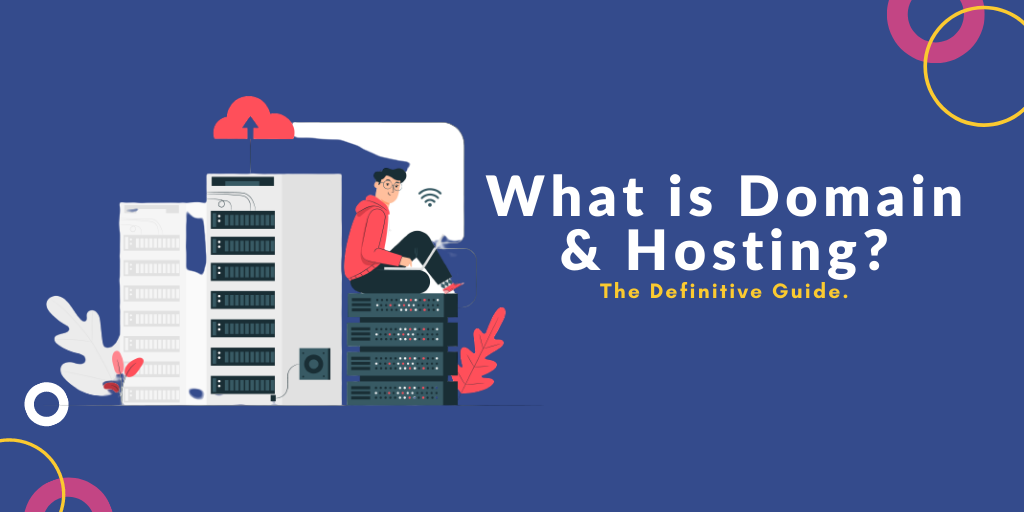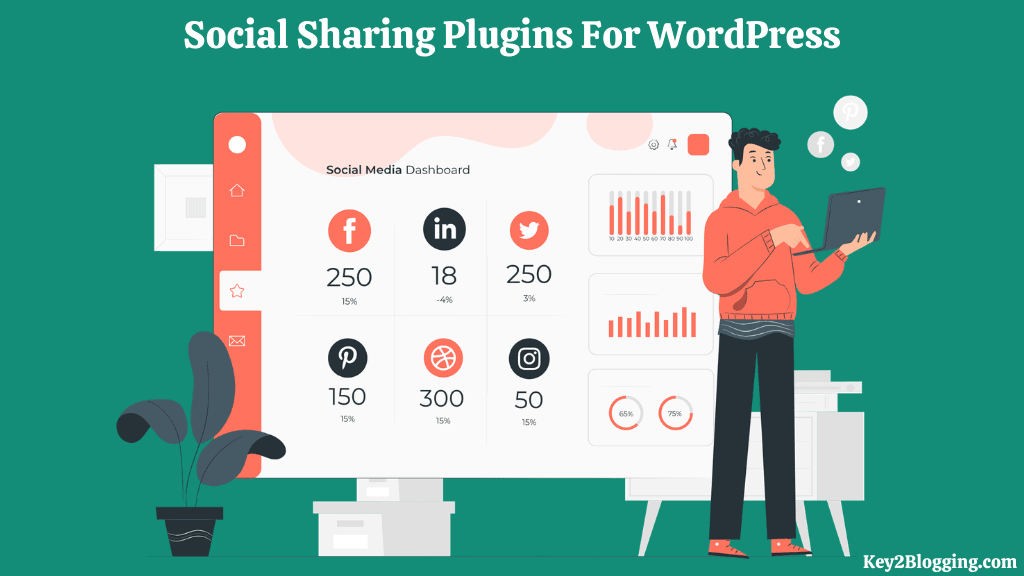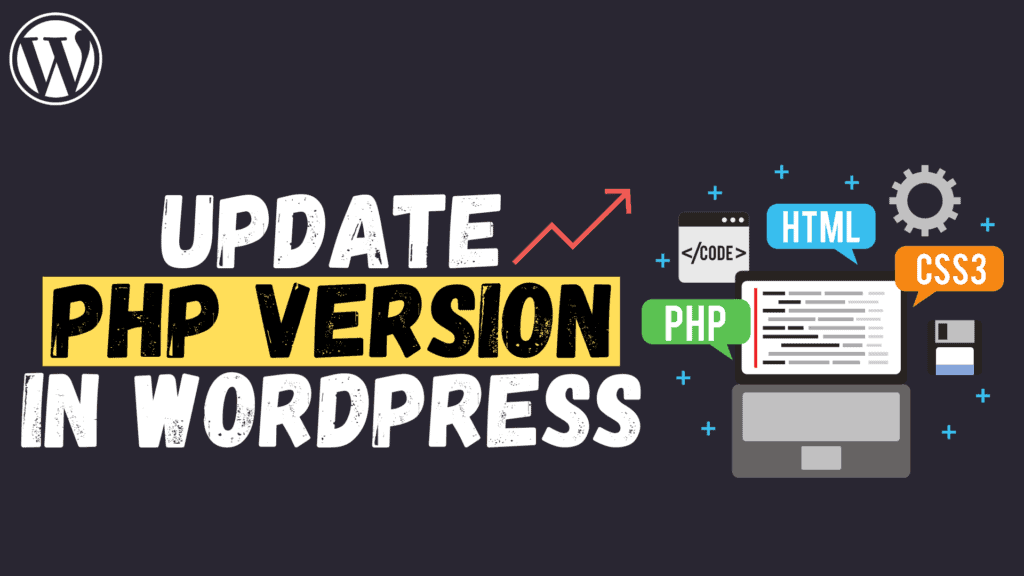what is domain and hosting in a website: The Definitive Guide

Before building a website you must know what is domain and hosting. In this post, we will discuss the complete history of the domain name and hosting and how to connect them to build a website easily.
what is a Domain name?
A domain name is the address of a website that people type in the browser URL bar to connect to that website. It helps users to enter into a specific website directly by typing the specific URL of that website.
For example Domain name of our website is key2blogging.com
Every website on the internet has a complex IP address (e.g. 103.22.254.0) that is linked to a Human-friendly domain name with the help of DNS (Domain name server) and be routed to the websites they are looking for. This process is known as a DNS lookup.
You need to remember that the domain name of each website is different and to use this name you need to register.
Who manages domain names?
All the domain names are managed by domain registries and these domain names are assigned by domain registrars like GoDaddy, Namecheap, etc. So to use the domain name you have to register a unique domain name for your website in any of the certified registrars. Do you know there are currently 300 million registered domain names?
what is the difference between a domain name and a URL?
A uniform resource locator (URL) is called a web address that contains the domain name along with other information like the transfer protocol and the path of the webpage.
For example https://www.key2blogging.com/about-us
Here You will find the domain name in the center and a transfer protocol, in this case, HTTPS (hypertext transfer protocol (secure) and the path of the webpage that is about-us
Structure of domain name
Domain names generally consist of two or three parts and it is separated by a dot(.)
Let’s understand this using this example
www.key2blogging.com where .com is a top-level domain (TLD).
some other top-level domains are .org, .edu, .net and some country-specific top-level domains like .in , .uk, .us etc.
- .com – commercial business
- .org – organizations ( generally non-profit)
- .edu – education website
- .net – network organization
- .gov – government website
More information:
Top-level domains are broadly classified into two categories.
- Generic top-level domains (gTLD) [ .com, .org , .edu ]
- country code Top-level domain (ccTLD) [ .in, .uk, .us ]
nTLDs refer to the new top-level domain that is used by some brand organizations and they are created for more flexibility and easy to use like .app, .cool, .ninja, etc.
You can also find the subdomain of a primary domain. You can create as many subdomains under the main top-level domain.
You probably see Google offers free sub-domain on its blogger platform like Websitename.blogspot.com
what is a WHOIS directory?
The WHOIS directory is a public listing of domain names along with the IP address, owner names, and other information like date of purchase, domain registrar, mailing address, etc.
But for privacy reasons, some site owners’ names or phone numbers are hidden from the WHOIS directory.
How to choose a domain name?
You need to follow some set up guidelines before selecting a domain name. Picking up a good domain name is a very crucial task and it can take some days to get the right name that is not registered yet.
- keep your domain short and simple that is easy to write and pronounce.
- Pick a domain that can be converted into a brand.
- Don’t buy a domain name that is similar to any other brand which makes your work very difficult to outrank an existing popular brand.
- Your domain should include the keyword on which business or niches you are working on. For example, our website key2blogging.com contains the blogging keyword which tells all about our website.
- Use an appropriate top level extension like .com (recommended) , .org or if you have country specific audience then you can use .in, .uk, .us etc.
what is Hosting?
Web hosting is the service that allows you to publish your website on the internet and when someone accesses your website and asks for a specific file he will get it from your web hosting.
It is basically the storage of your website where all the HTML, javascript, and CSS files are stored along with all your posts, images, and other types of files.
You can use your personal laptop or desktop as web hosting for your website but you have to keep your device on 24 hours with a good internet connection, which is practically not possible.

That’s you need a web hosting service from a company that provides you some physical storage for your website to run it smoothly.
We will also discuss How web hosting works and what are types of web hosting that you can use on your website?
How Web Hosting works?
Web hosting provides the necessary files for the website to display on a web browser.
When someone types your domain name on the internet and enters your website, first of all, your website sends a request to your web hosting provider for the data to show the user, and then web hosting upload the file to the web browser. In this way, your website works remotely.
Web hosting which is also called a web server runs on an operating system like Windows or Linux which performs all the tasks and provides security to your website.
The web server software works as a mediator between the internet and the files on the internet.
There are some popular web server programs out there like an open-source software called Apache, Nginx and in windows, you will find the IIS web server program.
In my opinion, Apache is the best web server program out there now.
Database management system:
Every Website needs a database to store the website data systematically and the most common and popular database used on almost every Website is MySQL.
It is open-source database software that handles complex relational databases easily.

MySQL is used by almost every content management system like WordPress, Joomla, and Drupal.
PostgreSQL is another database management software similar to MySQL and it is used by Ruby on rails.
Application layer scripting Language:
We learn about web servers and databases but to pull the information from the database and send it to the webserver content management software (CMS) comes into play Like WordPress.
CMS helps the website to become interactive and it is written by some programming language like PHP, Ruby, Python, etc.
Do you know?
WordPress is written on PHP, which is a server-side programming language. Just like WordPress, PHP is also an open-source project.
What is a Lamp stack?
It is a combination of the 4 technologies mentioned above.
- Linux operating system
- Apache webserver
- MySQL database
- PHP Application
If you see that some web servers used this term Lamp stack and every popular web server use this combination.
Hope you understand all the basics of web hosting. Let’s discuss the different types of web hosting that you can use with your WordPress Website.
Types of web hosting:
Web hosting is mainly divided into 5 types according to Storage speed, bandwidth limit, fast performance, and other features.
- Shared hosting
- VPS hosting
- Cloud hosting
- Dedicated hosting
- WordPress hosting
What is shared hosting?
Shared hosting is the most popular and affordable Hosting option for beginners as it is available at a cheap price.
In shared hosting, companies divided server resources into multiple parts and allocated them to different site owners.
Website speed is decent and they come with multiple plans within the shared Hosting.
Pros
- Low-cost hosting, decent performance for small website
- No technical knowledge required
- Auto install Website features
- Easy interface to use
Cons
- Little or no control over server configuration
- Traffic surges on other websites can slow down your website.
VPS hosting
VPS hosting is the same as shared hosting but a little different. Here hosting companies create a separate partition for each Website hosting on the same server.
So, a specific memory is allocated to each Website, and if a traffic surge in one the website won’t slow down your website sped. So VPS hosting is more stable than shared hosting but comes at a higher price.
Pros
- Dedicated server space
- Traffic surges on other websites have no effect on your performance
- Root access to the server
- Easy scalability and high customizability
Cons
- More expensive than shared hosting
- Some technical knowledge is required
Cloud Hosting
Cloud hosting is best for business websites with a high amount of traffic. In cloud hosting your website data is replicated in multiple web servers and if any server is down for technical reasons it will automatically change to another server. It helps your website with little or no download time on the server-side.
Many big companies like Google, Amazon also provide cloud hosting services which are surprisingly fast but cost you more than VPS hosting.
Pros
- Little to no downtime
- Server failures have no effect on your website
- Allocates resources on demand
- Pay-as-you-pricing strategy — you only pay for what you use
- More scalable than other web hosting types
Cons
- Hard to estimate the actual costs
- Root access is not always provided
Dedicated hosting
Dedicated hosting means you have your own private server which is solely used for your website.
Here you have the complete autonomy to choose the operating system, memory capacity, and software that you want to use on your server.
It gives you complete freedom to modify the server configuration according to your requirements.
Big companies use dedicated servers for their website as it handles lakhs of users daily.
Pros
- Full control over server configuration
- High reliability and security options
- Root access to your server
Cons
- High cost, more oriented towards larger businesses
- Technical and server management knowledge is a must.
Read Also: 5 common misunderstandings about dedicated Hosting.
WordPress hosting:
WordPress hosting is another form of shared hosting which comes with WordPress pre-installed. It is a little costlier than shared hosting as it comes with additional add-ons and plugins.
I don’t recommend using WordPress Hosting as it is a waste of money only. You can easily install WordPress on shared hosting with one-click free of cost. There is no point to pay higher for WordPress hosting.
Pros
- beginner-friendly Hosting
- Customer support team trained in WordPress issues
- Pre-installed WordPress plugins and themes
Cons
- Higher price than shared hosting
- Can’t install other CMS other than WordPress
- Unnecessary plugins and services pre-installed
After analyzing all the hosting types you will get an idea of what is the best hosting plan for you.
I recommend you buy shared hosting as a beginner and as the traffic goes to 5k page views per day you can switch to VPS hosting.
I am currently using the shared hosting plan of Hostinger which provides the best hosting service at a cheap price and fast loading speed.
You can also check the complete review of Hostinger Hosting here.
If you want to buy web hosting from hostinger then you can get a big discount going through the below link. (I will get a small commission at no extra cost to you)
We have discussed what domain name and hosting and what is best for you as a beginner.
In the next post, we will discuss how to connect the domain and hosting to build your first Website.






Hostinger hosting is really good.